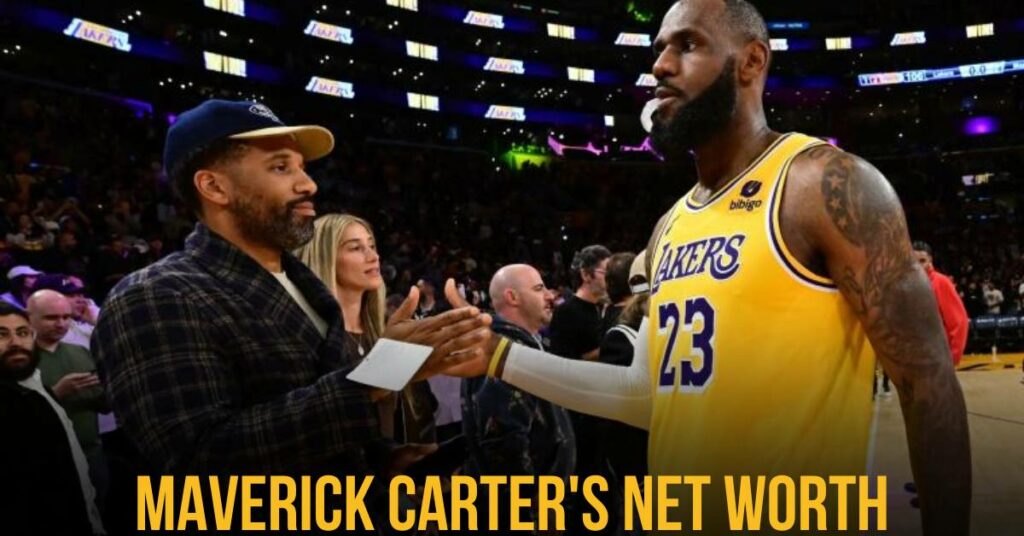5G resumes expand throughout the country, providing millimeter surge cellular connections at higher, quicker frequencies than 4G LTE. That’s significant for our phones and other mobile devices that communicate over cellular frequencies – and it might also be transformative for home networking.
With the possibility for near-gigabit speeds so over the air that rival those offered by cable and fiber internet service providers, combined with the allure of simple, consumer-friendly aspects that eliminate data caps, device fees, and the like, 5G is shaping up to be one of the most exciting developments in residences internet in years.
All of this is contingent upon the availability of a 5G home internet connection at your location. 5G coverage is not universal.
Nonetheless, Verizon and T-Mobile are the two carriers investing the most in expanding the availability of the technology for residential internet usage.
Both companies offer specialized 5G home internet services that promise high speeds and straightforward terms at a reasonable price. In certain places, both providers may be able to serve your house.
Time will tell how much if at all, 5G will disrupt the ISP sector. For the time being, let’s examine how these two leading suppliers presently compare.
Verizon 5G Home Internet Offers Fastest standard download speeds for revised wireless
Verizon 5G Home Internet leverages 5G ultrawideband technology to offer download rates of up to 1 gigabit per second and an average of 300 megabits per second.
That is the fastest average download speed that a major fixed wireless operator has ever offered. It makes a trade-off in terms of coverage since it is now accessible to around 20 million homes throughout the country.
The supplier intends to raise that number to 50 million by 2025 continuously.
T-Mobile Home Internet Suggests More comprehensive availability than any other fixed wireless resolution.
T-Mobile Home Internet has been available for less than a year. CNET had an early peek at the program in February, and it officially launched in April. Despite this, it has the broadest coverage of any fixed wireless internet service.
T-Mobile has been enabled to rapidly extend its coverage map and give service to more homes than Verizon’s 5G solution by using its 4G LTE network in addition to the developing 5G grid.
While the download speed is about 100Mbps, this may be sufficient for certain users, particularly those in remote locations where satellite and DSL were formerly the only alternatives.
Must check: 4 Essential Social Security Rules You Must Know
Where do Verizon and T-Mobile offer 5G home internet service?
Neither provider provides a comprehensive coverage map for their 5G home internet option. They are also not listed in the Federal Communications Commission’s broadband provider database.
However, when considering the overall number of cities they claim to serve and the total number of homes, T-Mobile is the leader in this category. Nonetheless, Verizon has bridged the divide with the launch of its 5G Ultra Wideband service in mid-January.
While Verizon 5G Home Internet is accessible in around 20 million homes nationally, T-Mobile Home Internet is available in 30 million households in slightly more than 600 cities. Verizon’s service, by comparison, is accessible in portions of 900 cities but with fewer houses.
How do Verizon and T-Mobile’s 5G plans compare?
Are you fed up with attempting to grasp which internet bundle to choose from an apparent plethora of options? Are you hesitant to sign a long-term contract with impending consequences if you fail to meet it?
Are you tired of sweating it out each month due to a data cap? No need to be concerned! Both Verizon and T-Mobile are committed to offering an unencumbered broadband experience.
Each provider provides a single 5G home internet service that does not need a term commitment and does not include data limitations.
One minor distinction is that Verizon offers two 5G options: Verizon 5G Home and Verizon 5G Plus. Verizon 5G Home has a two-year money-back guarantee, while Verizon 5G Plus includes a three-year price warranty.
So which one is faster?
While 5G can reach gigabit download speeds, neither provider’s residential internet package will achieve such performance levels. For example, T-Mobile states on its website that consumers may anticipate “normal download speeds of over 100Mbps” and a usual experience of 35-115Mbps. Why is the price so low?
T-Mobile Home Internet’s availability is accelerated by the company’s developing 5G grid and current 4G LTE network. As a result, do not anticipate a pure 5G experience.
“During periods of congestion, Home Internet clients may experience slower speeds than other customers owing to data priority,” the very first phrase of T-Mobile Home Internet’s entire terms and conditions says.
“Service may be delayed, halted, terminated, or limited due to abuse, abnormal usage, network interference, or our inability to offer a high-quality service to other users.”
On the other side, Verizon informs its users that they may anticipate an average download speed of about 300Mbps. The primary reason for the quicker speeds is Verizon’s full reliance on its ultrawideband 5G network.
It employs low-band, mid-band, and millimeter-wave technologies to give consumers download rates of 940Mbps.
Which offers the most suitable value?
While a superficial glance at the table above may suggest that T-Mobile is the better bargain at $50 per month over Verizon’s $70 per month, it’s critical to consider the cost per Mbps to understand the true value better.
When you include the average download speed of 100Mbps included in the $50 monthly subscription, T-Mobile comes in at 50 cents per Mbps, which is close to the price of a midrange cable internet package.
Verizon’s average download speed of 300Mbps is halved at a cost per Mbps of slightly under 24 cents.
Additionally, if you pick the Verizon 5G Plus plan, your monthly payment drops to $50, and the cost per Mbps drops to just under 17 cents. That is pretty reasonable compared to the cable and fiber internet services currently available.
What about the good print?
Consider the concept of the no-strings-attached online experience once again. Verizon and T-Mobile are anxious to convince consumers to test their 5G home internet solutions, and hence do not include any hidden fees or taxes in the monthly price.
As previously stated, there is no commitment and no data limit. Additionally, there is no extra rental equipment price, no installation or activation fee, and no other trap expenses.
What kind of deals and promos do Verizon and T-Mobile offer?
Still not persuaded by T-Mobile and Verizon’s plain terms? They’ll attempt to influence you with promotional offers, but Verizon has the upper hand here.
For instance, T-Mobile is presently offering new Home Internet users a one-year membership to Paramount Plus for free. That’s a good deal for $60.
However, Verizon has made a far more aggressive offer. Verizon 5G Home Plus subscribers will get a Google Nest Hub Max ($229 value), a year of AMC Plus ($108), a free year of Disney Plus ($96), and two months of Sling TV ($70 value).
Additionally, you’ll get one month for free. Verizon 5G Home customers will get a Google Nest Mini instead of the Google Nest Hub Max, as well as six months of Disney and AMC Plus (instead of the full year).
How do Verizon and T-Mobile rank for client satisfaction?
On our ISP evaluations, we reference two of the industry’s leading customer satisfaction surveys — J.D. Power and the American Customer Satisfaction Index — both of which position Verizon towards the top of their rankings.
However, those home internet polls concentrate on Verizon Fios, a fiber-optic internet service, rather than Verizon 5G Home Internet.
Finding reviews on T-Mobile Home Internet is even more challenging, given the service has been available for less than a year. Last year, one of the authors participated in T-trial Mobile’s program and picked it up to his prior provider, Comcast Xfinity.
Also, PCMag’s most current Readers’ Choice awards gave T-Mobile Home Internet the highest overall ranking among cellular carriers, awarding it a 7.7 on a 0-to-10 scale.
It is much higher than the survey’s intermediate ISP score of 7.1 and places T-Mobile among the top ten ISPs in terms of widespread client satisfaction.
Too earlier to call?
T-Mobile and Verizon are both rapidly expanding their 5G networks, so we’re far closer to the beginning than the middle or finish of this tale, particularly in terms of 5G fixed wireless internet in general.
Regarding these two providers, T-Mobile Home Internet unquestionably has the availability advantage.
By combining its 4G LTE network with 5G, Verizon becomes a far more attractive choice, especially in rural and underserved regions. It offers a compelling alternative to satellite or DSL.
However, Verizon 5G Home Internet outperforms T-Mobile Home Internet in download speeds.
With the recent announcement of a new Verizon Router that enables next-generation connections on the ultrawide 6GHz band, Verizon seems to be positioning itself to deliver more upside shortly in places where the two services overlap.




